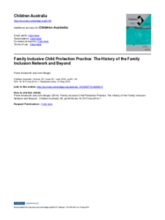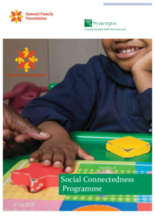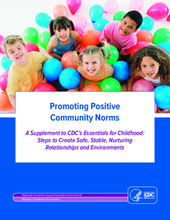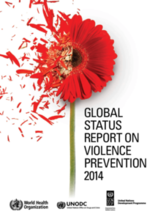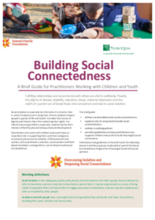Displaying 661 - 670 of 947
Infant Mental Health Journal has published an important Special Issue on Global Research, Practice, and Policy Issues in the Care of Infants and Young Children at Risk. This article documents an initiative to establish a replicable professional model that would direct the child welfare system in the Nizhny Novgorod Region away from institutional care and toward services for young children and their families that reduce the risk of institutionalization.
This article records briefly the history of the Family Inclusion Network as an organisation that promotes family inclusive child protection practice.
This report is based on a synthesis of eight assessments of the implementation of the Guidelines for the Alternative Care of Children (“the Guidelines”) in Benin, Gambia, Kenya, Malawi, Tanzania, Togo, Zambia and Zimbabwe.
This report describes the Social Connectedness Programme and the three strands of research that inform it. The report defines social connectedness and social isolation and explains the benefits of social connectedness.
Barn is a magazine about children’s rights published by Save the Children Sweden with four issues per year. This issue is focused on the role of fathers in children’s wellbeing and development.
This guide serves as a supplement to the United States CDC guide “Essentials for Childhood: Steps to Create Safe, Stable, Nurturing Relationships and Environments.” It provides guidance on creating a context for increasing safe, stable, nurturing relationships and environments for children and families by promoting positive community norms.
This moving short film (7 mins) produced by MenCare examines the circumstance of one man who found himself as the primary caregiver to his children when his female partner moved abroad for work.
This report from the World Health Organization provides an overview of the progress countries have made in implementing the recommendations set out in the World Report on Violence and Health in 2002.
This brief guide: defines social isolation and social connectedness; explains why it is important to build social connectedness; outlines enabling policies; provides guidelines on how practitioners can support children and youth to build meaningful social connections.
This report from SOS Children’s Villages and the University of Bedfordshire provides reviews and assessments of the implementation of the Guidelines for the Alternative Care of Children in 21 countries around the world.

